Heightened tensions, policy uncertainty could signal ‘next turning point’ in world trade: SM Lee
Senior Minister Lee Hsien Loong says it is Singapore’s hope that world trade will continue growing, whatever the uncertainties and turbulence ahead.ST PHOTO: LIM YAOHUI
Vanessa Paige Chelvan
Mar 24, 2025
SINGAPORE – The world cannot assume global trade will continue keeping pace with gross domestic product amid heightened strategic tensions and policy uncertainty, including those brought about by a new administration in the United States, Senior Minister Lee Hsien Loong said.
If the trade-to-GDP ratio begins to fall, there will be serious economic and strategic implications, which will dampen economic growth in many countries at the least, said SM Lee at a lecture during the opening of the Singapore Maritime Week. This will cause further social and political problems domestically and internationally.
“In that event, the world would truly enter a new epoch, which it has not seen since the Second World War,” the former prime minister said on March 24, adding that the present moment could prove to be the “next turning point”.
SM Lee said it is Singapore’s hope that world trade will continue growing, whatever the uncertainties and turbulence ahead. This is not just to sustain the maritime industry, but also to enable more productive and prosperous lives around the world.
Singapore’s task, he said, is to do its part to enable and foster growth of international trade, and make its economy and maritime industry more efficient, competitive and trusted.
This is so that others will still want to trade and do business here, whatever the state of the world, and the Republic can continue to make a living for itself, added SM Lee at the Suntec Singapore Convention and Exhibition Centre.
Over the past 60 years, Singapore’s economy has flourished in tandem with globalisation. The world was generally peaceful and stable, and the global order was underwritten by the US, supported by its allies in Asia and Europe, SM Lee said.
It was during this time that multilateral institutions, such as the United Nations, were established, and international laws and treaties were negotiated and adopted. These included the UN Convention of the Law of the Sea, a universal legal framework on the governance of the ocean.
Countries big and small generally acknowledged these international rules and norms, with the understanding that economic liberalisation and freer trade would benefit everyone, SM Lee noted.
“Many countries acted on this understanding and reaped the benefits, including small economies like Singapore and huge ones like China,” he said.
As international trade boomed, the global maritime industry grew with it.
“Singapore rode these waves and made the most of them,” SM Lee said. “We made investments and implemented policies to build an open, reliable and trusted trade and maritime hub.”
This allowed Singapore to become a key link in global supply chains, “a gateway between East and West”, said the Senior Minister.
But it is a different world today as attitudes towards trade and trade patterns have shifted, he noted, and geopolitical developments have severely strained the global trading system.
As tensions between the major powers have intensified over the past decade, countries have become increasingly anxious to stay ahead of one another.
“They are prioritising security, resilience and self-reliance over interdependence and cooperation,” he added.
Once optimised for economic efficiency, supply chains are being reconfigured “through friend-shoring, near-shoring and re-shoring”.
Friend-shoring refers to when supply chain networks are rearranged to focus on a country’s allies. Near-shoring is a scenario where companies relocate their operations to a nearby country, often with a shared border, while re-shoring is when a business transfers operations back to its home country.
In addition to these supply chain challenges, restrictions have been imposed on things that can preserve a country’s lead over its competitors, from investments to data, and critical minerals to semiconductor chips.
“Some big powers are adopting a more transactional, sometimes coercive, approach to achieve immediate objectives,” SM Lee said.
For example, the new administration in the US believes that under the previous system, the US had been treated unfairly by its trading partners, both friend and foe, he noted.
This is “far from the erstwhile win-win view of international trade, investments or multilateral agreements”.
The US now treats tariffs not only as a preferred economic instrument, but also as bargaining leverage in non-economic domains, to protect its overall national interests, SM Lee said.
Other countries have responded in kind, and these strategic and policy shifts are reshaping the landscape of world trade.
Earlier in 2025, US President Donald Trump announced
significant new import taxes aimed Canada, Mexico and China, the three largest trading partners of the US. China and Canada have retaliated by imposing their own tariffs.
The maritime industry has been directly affected, with countries acting to reduce their reliance on competitors for freight shipping and shipbuilding, or displace rivals controlling strategically located ports, SM Lee said.
SM Lee speaking at a fireside chat, which was moderated by Ambassador-at-Large Chan Heng Chee, during the opening of the Singapore Maritime Week at Suntec convention centre on March 24.ST PHOTO: LIM YAOHUI
More on this Topic
Interactive: How the global shipping disruption can affect youPSA International reports handling a record 100.2 million containers in 2024
Besides the strains on the global trading system, a second powerful force – climate change – is quietly impacting global trade patterns.
Climate change and extreme weather events are already affecting established trade routes, SM Lee said.
Droughts have lowered water levels in reservoirs supplying the Panama Canal, a waterway connecting the Caribbean Sea with the Pacific Ocean. Meanwhile, new routes such as the Northeast Passage, which runs mainly along Siberia’s northern coast, are opening up due to the melting of Arctic ice.
SM Lee said that as a significant emitter, the maritime industry is under pressure to reduce planet-warming carbon emissions through the use of greener fuels and more efficient ships.
International shipping accounts for 3 per cent of all greenhouse gas emissions, roughly as much as the share taken up by global aviation emissions.
SM Lee said patterns of trade are likely to shift to account for the environmental impact of carbon emissions from shipping.
“Whether this happens through carbon taxes on fuel or carbon border adjustment taxes, the result will be to reorient existing supply chains and trade routes,” he added. Carbon border adjustments refer to tariffs on high-carbon imports.
These global shifts will have a major impact on Singapore. “To us, trade is existential,” SM Lee said, adding that the maritime industry is also a major contributor to Singapore’s economy.
But while trade faces significant headwinds, globalisation is unlikely to completely reverse itself, SM Lee said, as the world still needs to trade, and countries still need to do business with one another.
This is a matter of survival for some countries, as more than 80 per cent of the world’s population live in countries that are net importers of food, including Singapore, he said.
“Without trade, these countries would simply starve.”
For other countries, trade is a crucial driver of prosperity, enabling the international division of labour, and creating efficiencies and economies of scale.
“No country can produce on its own a modern car, aeroplane or handphone without relying on materials and components from abroad, usually from many countries,” SM Lee said.
He noted that for decades until the global financial crisis (GFC) in 2008, international trade grew faster than world GDP.
More on this Topic
Singapore boosts maritime, aviation hub role as cargo flows shift and supply chain risks riseRecent geopolitical moves could lead to further trade disruptions, warns Chee Hong Tat
In the 1950s, international trade was around 15 per cent of world GDP. By the time the GFC hit, this figure was 55 per cent.
“This was how countries around the world sustained economic growth and productivity gains, and steadily improved their peoples’ lives,” SM Lee said.
While globalisation slowed after the GFC, international trade generally kept pace, remaining at 55 per cent of world GDP.
In the decade and a half since the GFC, world trade continued to rise and reached a record US$33 trillion (S$44 trillion) in 2024.
To foster the growth of international trade and boost its economy, Singapore is committed to staying open, SM Lee said.
“Even with globalisation in retreat, many countries still believe that trade can be a win-win proposition and want to preserve as much of the benefits of the multinational trading system as possible,” SM Lee said.
Singapore will continue to support a multilateral rules-based order, international cooperation and interdependence.
Singapore joined the International Maritime Organisation, a UN agency, as a member state soon after its independence, and became a council member in 1993.
Singapore also hosted the
first general assembly of the International Organisation for Marine Aids to Navigation, which harmonises global maritime navigation systems, in February.
“Beyond multilateral frameworks, we pursue many regional and bilateral trade partnerships and arrangements,” said SM Lee.
Singapore has 27 free trade agreements, which collectively cover 90 per cent of its trade, and is “doubling down on staying open”, he said.
Singapore will continue to strengthen itself as a regional hub and global node, as modern Singapore had grown and prospered by “being an entrepot, an emporium of the Orient,” SM Lee said.
The city-state has also steadily invested in its port infrastructure and has built up an ecosystem to support the maritime industry, including its port, shipping lines, shipyards, bunkering services and legal services.
Today, Singapore is one the busiest ports in the world, with more than 1,000 vessels in its port at any time, SM Lee said. The maritime sector contributes to more than 6 per cent of Singapore’s GDP and about 140,000 jobs.
SM Lee said Singapore will continue to build up the maritime industry and to invest in capabilities and infrastructure, such as the upcoming Tuas mega port, as well as help to mitigate climate change.
He said Singapore’s maritime workers must be prepared to take on new and more productive roles, and not be sidelined or displaced by technology or artificial intelligence (AI).
The Republic is, therefore, investing heavily in its people, such as upskilling them to operate new AI and digital systems, and advanced technologies such as drones and underwater robots.
On the climate front, Singapore has committed to peaking emissions before 2030 and achieving net-zero emissions by 2050.
“This is an extremely difficult task for an island nation with hardly any energy sources of our own, whether renewable or fossil,” SM Lee said.
To respond to climate change in the maritime industry, Singapore is investing in green technologies and alternative fuels, as well as training workers to handle such fuels to prepare for their widespread use, SM Lee added.
While the world cannot escape the turbulent times ahead, “if we plan ahead and take the right steps now, we have every chance of continuing to thrive”, he said.
The 19th edition of the Singapore Maritime Week, which will be attended by more than 20,000 people from nearly 80 countries, runs from March 24 to 28.






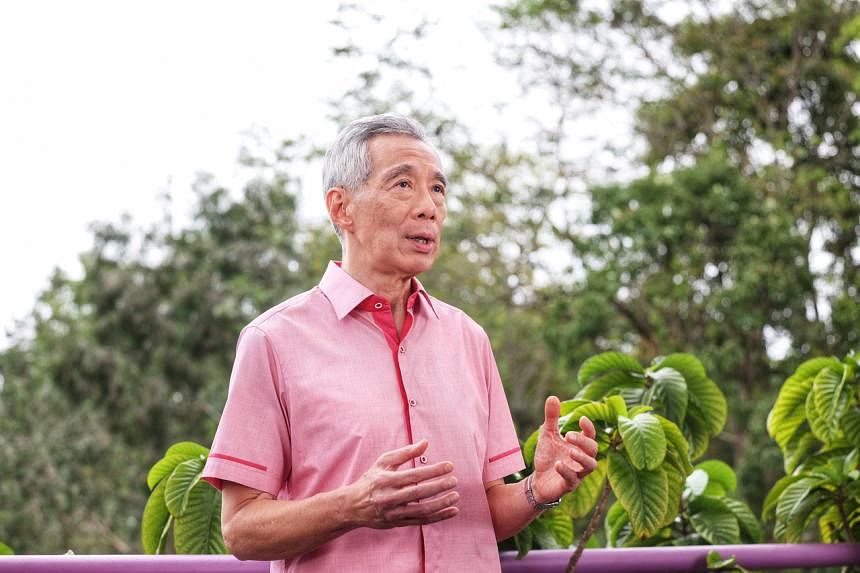

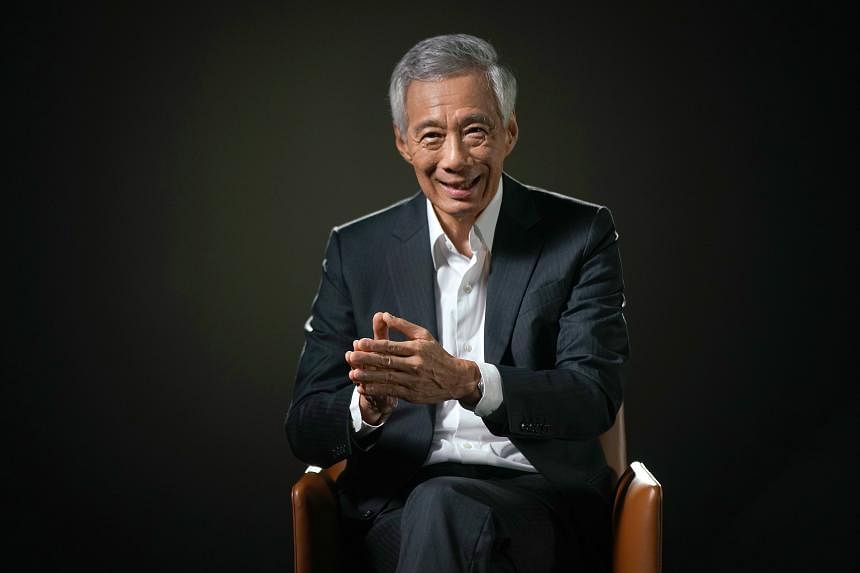

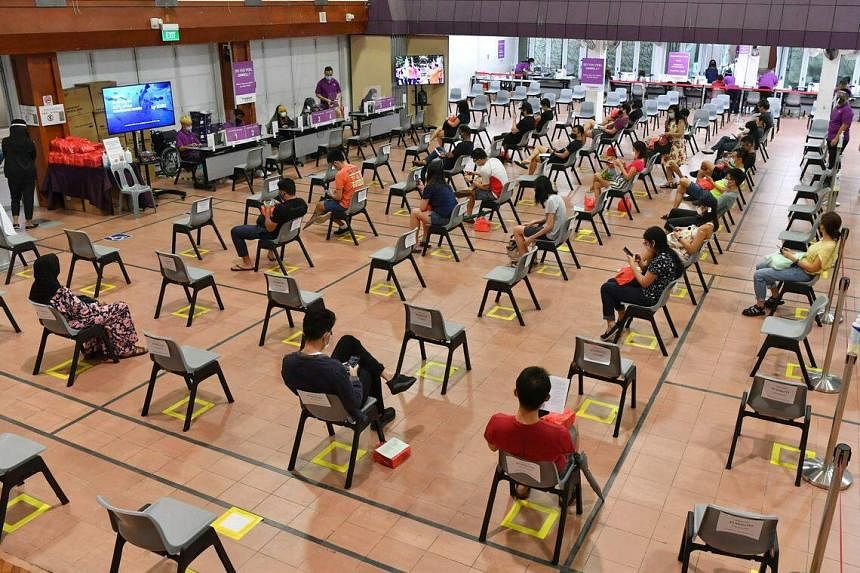
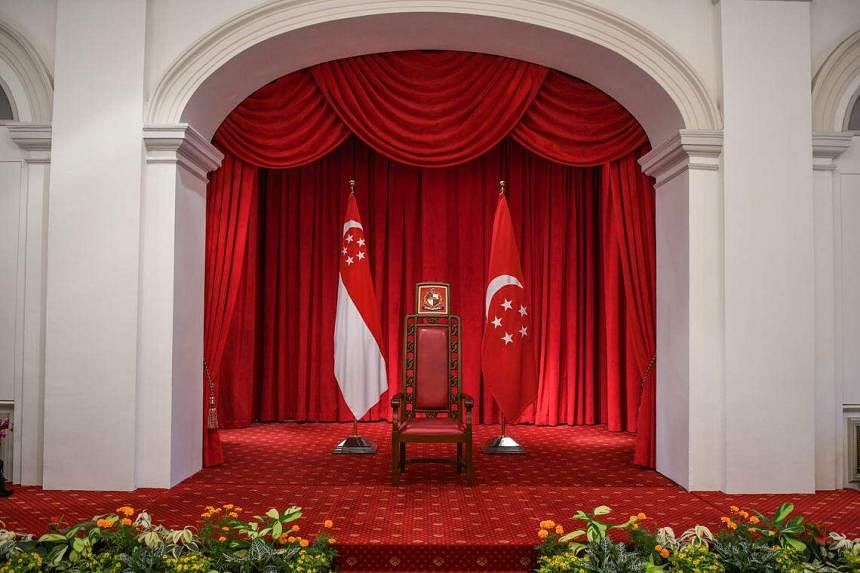
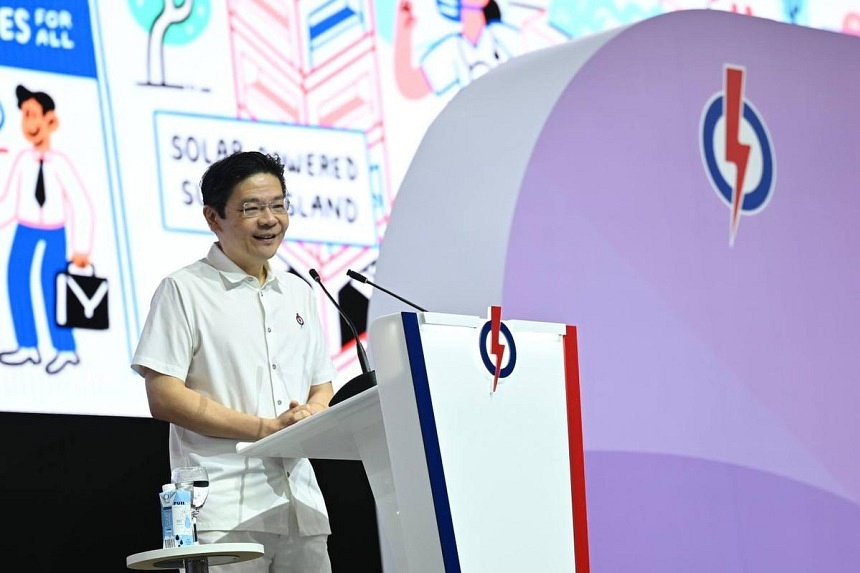








![CMG20250315-WooFL01 /SCCCI 62nd Council Installation Ceremony [SCCCI Auditorium, SCCCI Building, 47 Hill Street ] - 尚达曼总统与全体董事合照留念 CMG20250315-WooFL01 /SCCCI 62nd Council Installation Ceremony [SCCCI Auditorium, SCCCI Building, 47 Hill Street ] - 尚达曼总统与全体董事合照留念](https://cassette.sphdigital.com.sg/image/straitstimes/2bd5978b8edb036dda463785489095b42539602e0da6bad07c80f764cdf56406)





